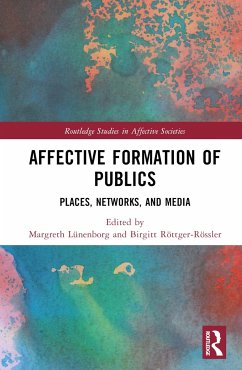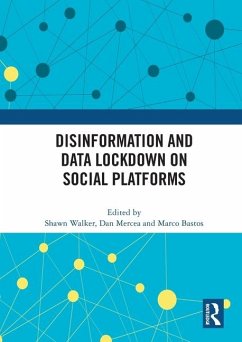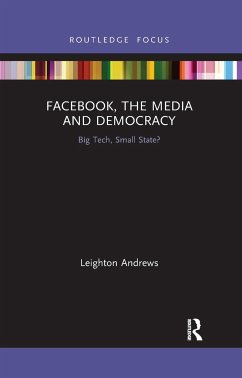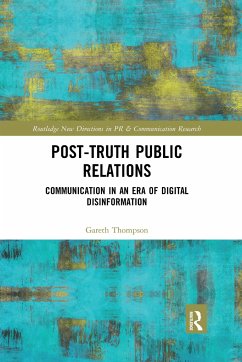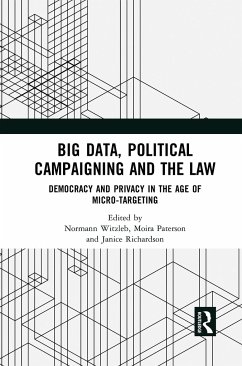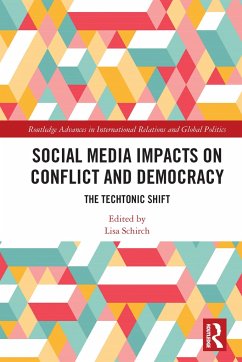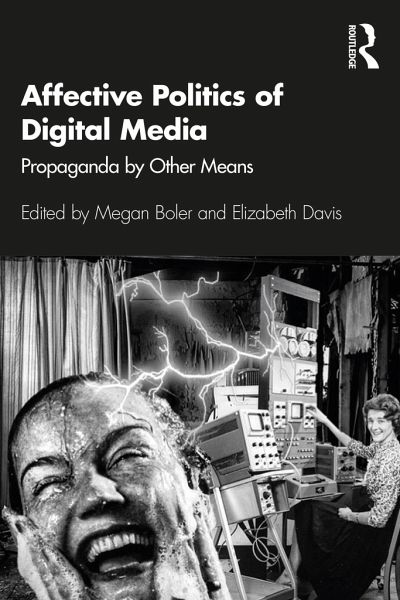
Affective Politics of Digital Media
Propaganda by Other Means
Herausgegeben: Boler, Megan; Davis, Elizabeth
Versandkostenfrei!
Versandfertig in 6-10 Tagen
42,99 €
inkl. MwSt.

PAYBACK Punkte
21 °P sammeln!
This interdisciplinary, international collection examines how sophisticated digital practices and technologies exploit and capitalize on emotions, with particular focus on how social media are used to exacerbate social conflicts surrounding racism, misogyny, and nationalism.Radically expanding the study of media and political communications, this book bridges humanities and social sciences to explore affective information economies, and how emotions are being weaponized within mediatized political landscapes. The chapters cover a wide range of topics: how clickbait, "fake news," and right-wing...
This interdisciplinary, international collection examines how sophisticated digital practices and technologies exploit and capitalize on emotions, with particular focus on how social media are used to exacerbate social conflicts surrounding racism, misogyny, and nationalism.
Radically expanding the study of media and political communications, this book bridges humanities and social sciences to explore affective information economies, and how emotions are being weaponized within mediatized political landscapes. The chapters cover a wide range of topics: how clickbait, "fake news," and right-wing actors deploy and weaponize emotion; new theoretical directions for understanding affect, algorithms, and public spheres; and how the wedding of big data and behavioral science enables new frontiers of propaganda, as seen in the Cambridge Analytica and Facebook scandal. The collection includes original interviews with luminary media scholars and journalists.
The book features contributions from established and emerging scholars of communications, media studies, affect theory, journalism, policy studies, gender studies, and critical race studies to address questions of concern to scholars, journalists, and students in these fields and beyond.
Radically expanding the study of media and political communications, this book bridges humanities and social sciences to explore affective information economies, and how emotions are being weaponized within mediatized political landscapes. The chapters cover a wide range of topics: how clickbait, "fake news," and right-wing actors deploy and weaponize emotion; new theoretical directions for understanding affect, algorithms, and public spheres; and how the wedding of big data and behavioral science enables new frontiers of propaganda, as seen in the Cambridge Analytica and Facebook scandal. The collection includes original interviews with luminary media scholars and journalists.
The book features contributions from established and emerging scholars of communications, media studies, affect theory, journalism, policy studies, gender studies, and critical race studies to address questions of concern to scholars, journalists, and students in these fields and beyond.





